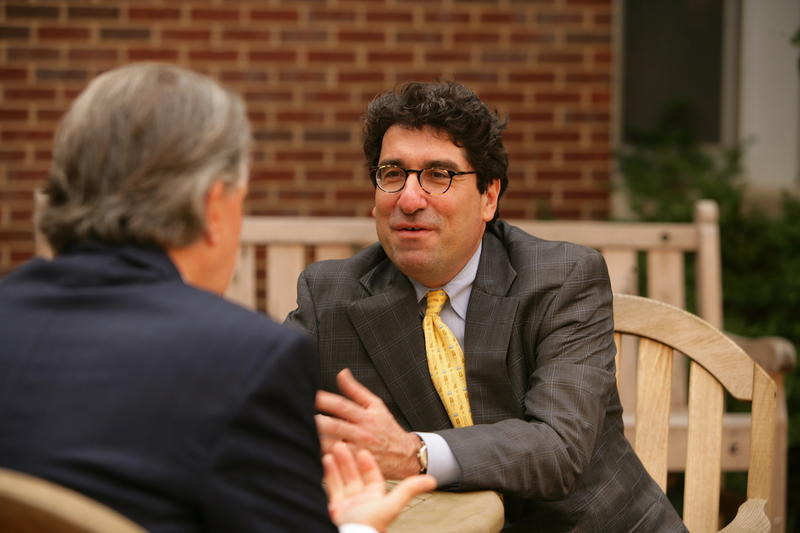
Vanderbilt’s Nicholas Zeppos is being praised for his leadership of the school, particularly in terms of bringing more diversity to the campus.
The university chancellor announced Tuesday that he’s stepping down after more than a decade. He cited health concerns.
Zeppos declined to be interviewed, as did his interim replacement, Susan Wente. In a statement, the chairman of the university’s Board of Trust praised Zeppos for his leadership of Vanderbilt through the global financial crisis of the late 2000s and the establishment of Opportunity Vanderbilt, a program of financial grants that replaced student loans.
Author Andrew Maraniss, who has been around the Vanderbilt campus since he was a student in the late 1980s, says Zeppos’ impact has been apparent.
“Visibly, the campus has changed quite a bit. A lot of people point to the buildings, but I would point to the composition of the student body,” Maraniss says. “You can’t help notice that it looks different when you walk around campus.”
More than 40% of Vanderbilt’s most recent freshman class was people of color, according to the university. And while officials cite Opportunity Vanderbilt as a factor in increasing diversity, Maraniss also credits personal touches, like inviting Perry Wallace, the first black basketball player in the SEC, back to speak to students.
“You know, there’s two parts to a successful effort at diversity at an institution,” he says. “One is numbers, but the other is culture.”
Zeppos also oversaw some of the headiest times in Vanderbilt athletics, with the football team appearing in bowl games more often than not during his tenure, including
three years straight under former coach James Franklin. Vanderbilt baseball also
won a national title in 2014 and became a regular in the College World Series.
However, in recent years the administration has struggled to balance fundraising for athletics with academics. Zeppos was even accused of sabotaging efforts to raise money for a new football stadium, according to
the Tennessean.
Meanwhile, graduate students and non-tenured faculty have both tried to unionize. And some faculty have asked
whether financial aid is now too generous to be sustainable.
But Zeppos has enjoyed a long run, even though he stepped into the role on an interim basis. That came after the abrupt departure of his predecessor, Gordon Gee, a superstar in the academic world, who has flitted from university to university.
Zeppos, by contrast, has been a career Commodore, and after a yearlong break, he hopes to go back to teaching law.
Jason Moon Wilkins contributed to this report.


